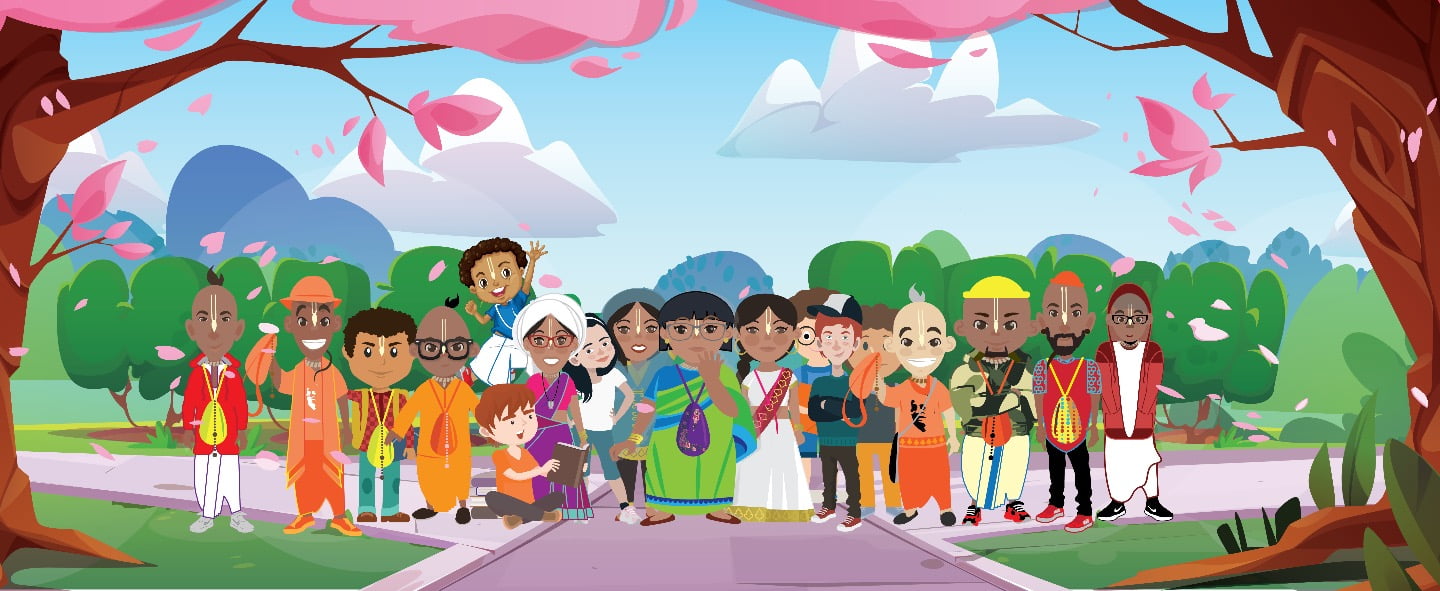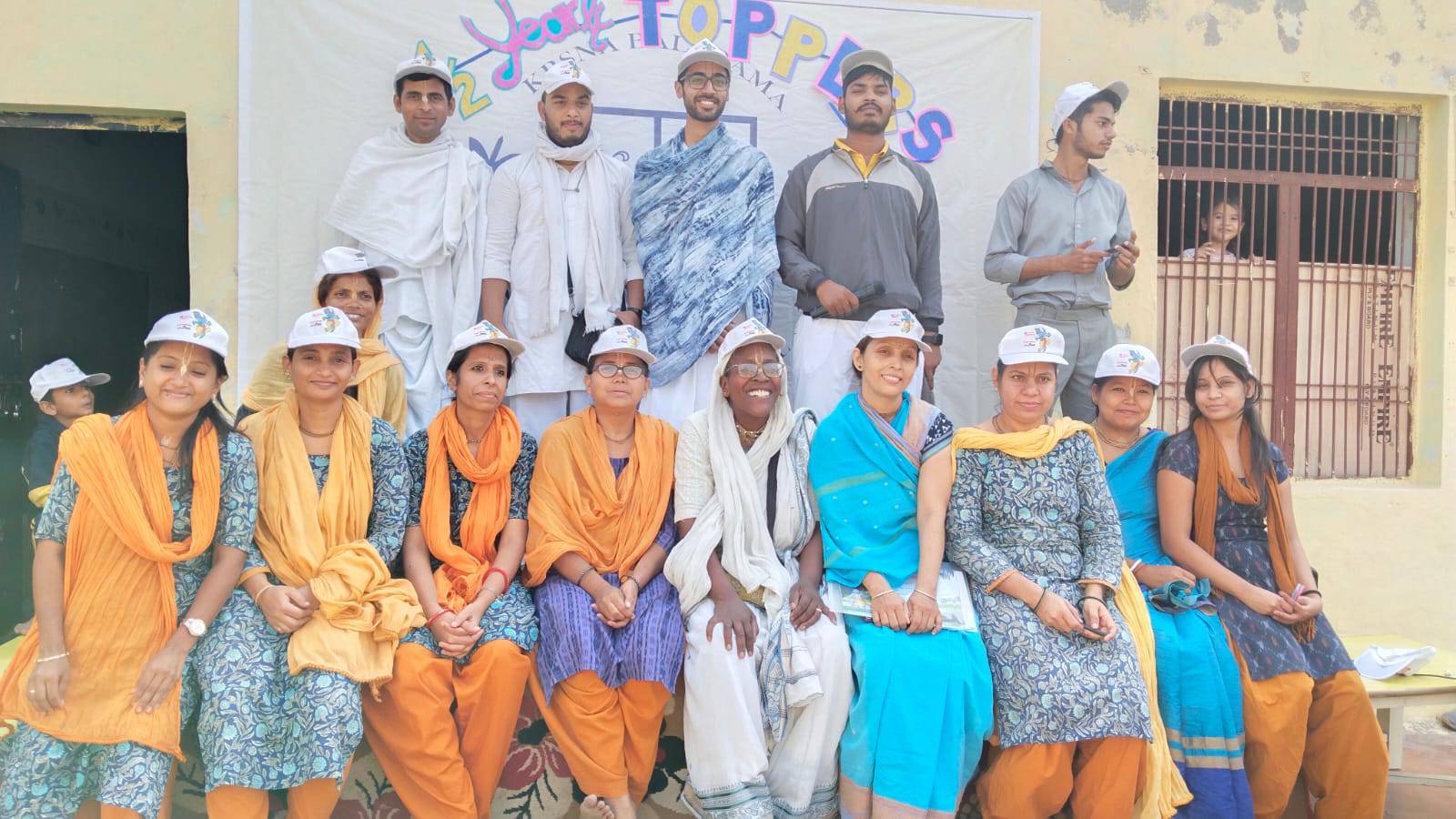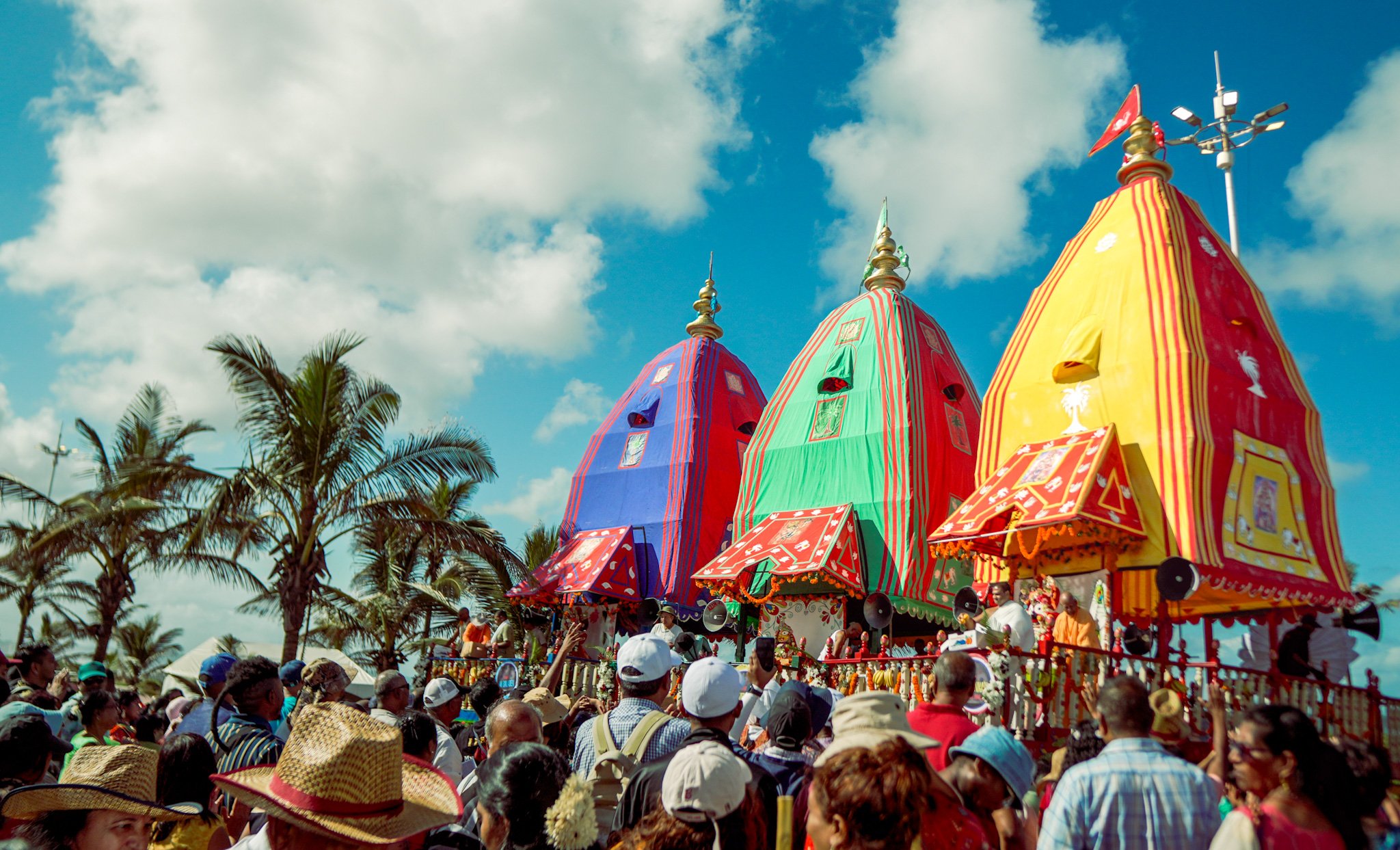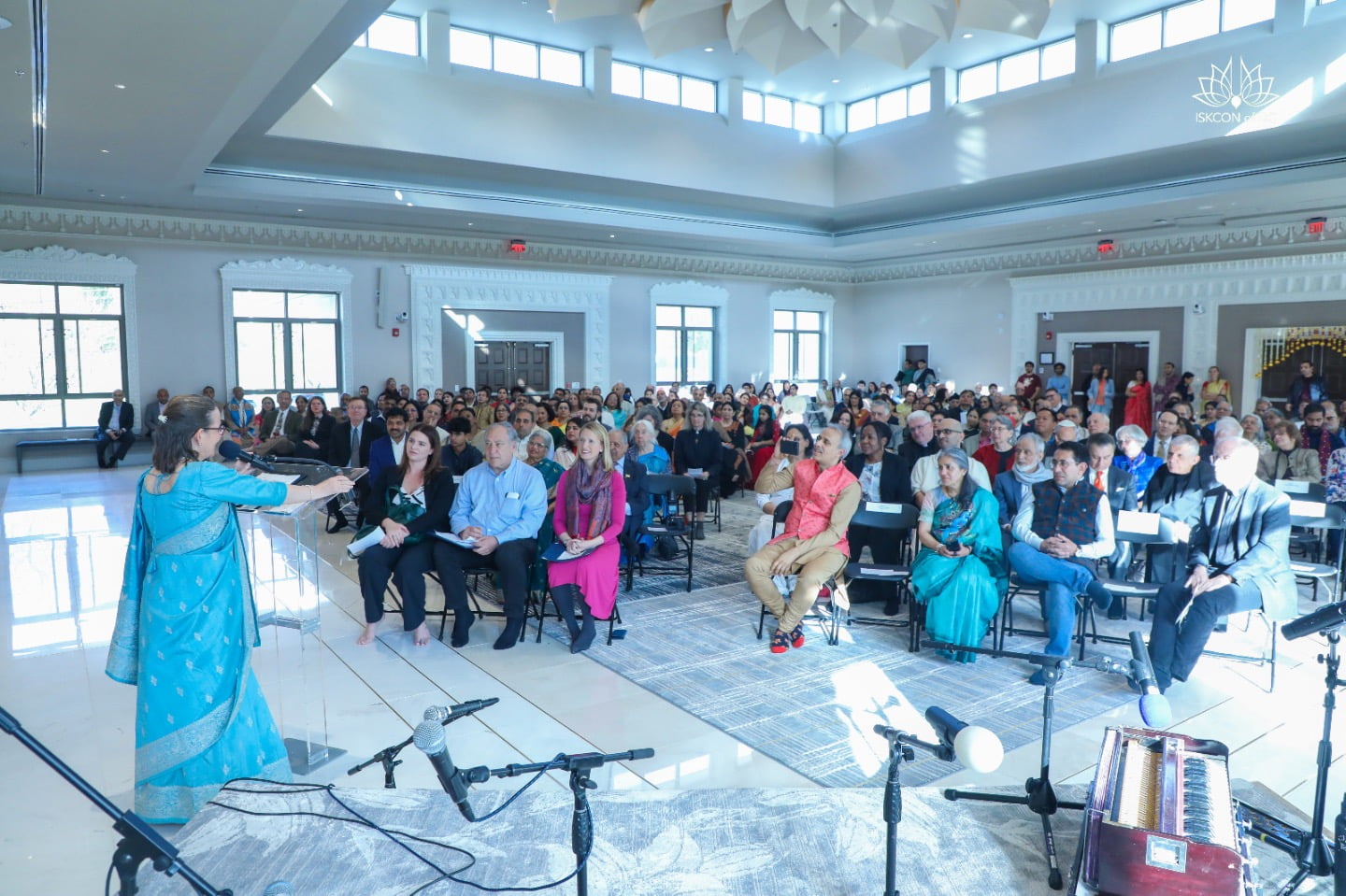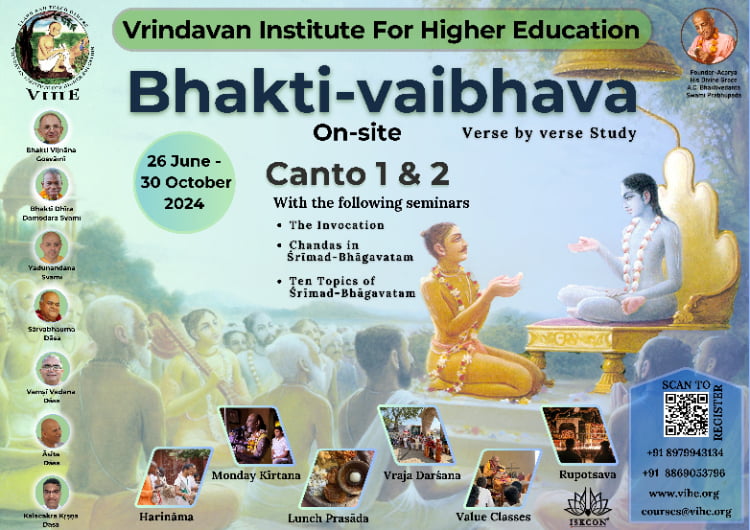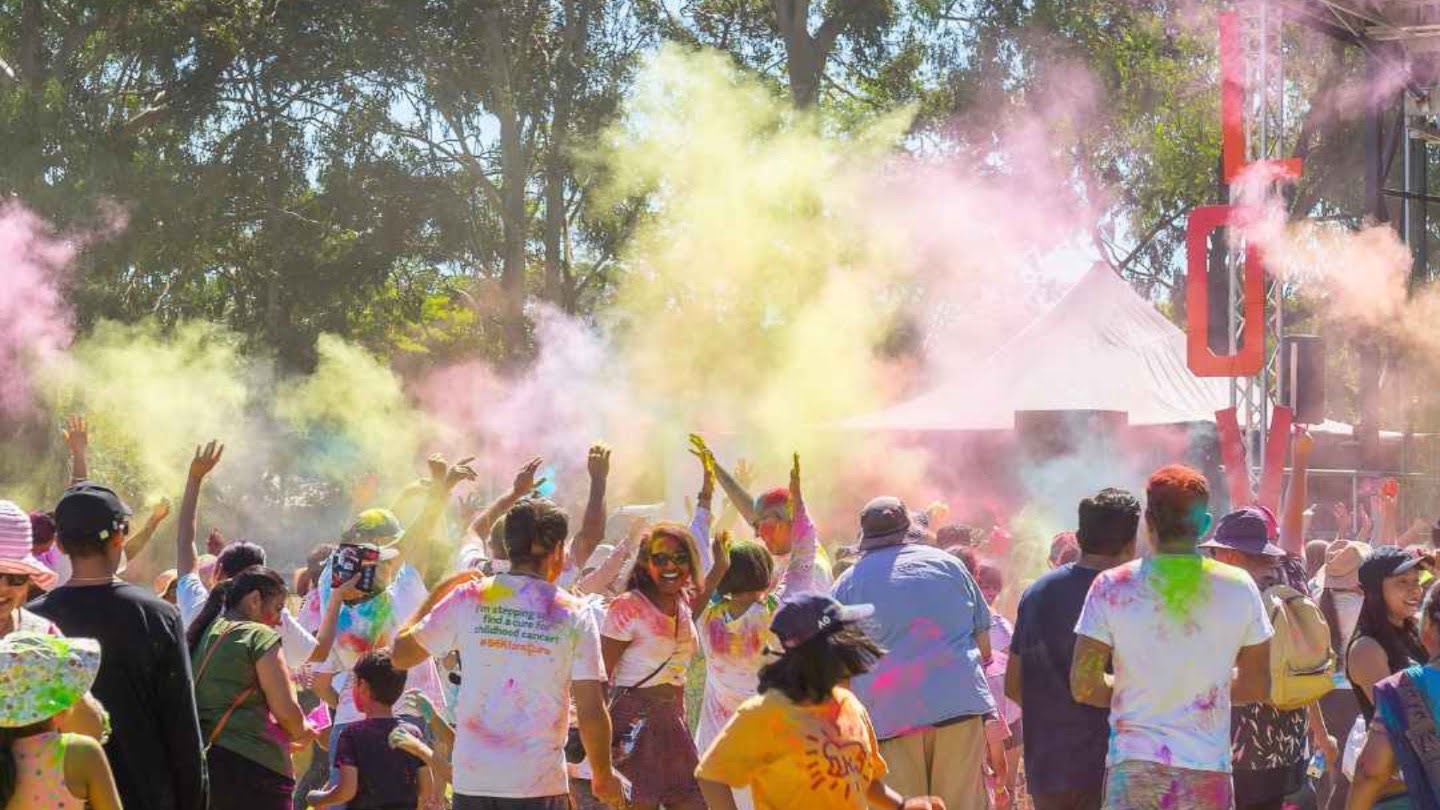Award-Winning Flutist Infuses Lessons with Krishna
By Madhava Smullen | Oct 30, 2014

On September 8th, award-winning flutist Luis De La Calle opened his own music academy in Geneva, Switzerland, where students aged four through seventy-five can learn the transverse flute, recorder, pan flute, and Japanese, Bansuri, and Peruvian bamboo flutes.
But his lessons come with added spiritual nutrition. Because Luis, also known as Bhadra Rupa Das, is an ISKCON devotee.
Bhadra Rupa teaches using the rhythmic system of South Indian Carnatic music, yet he replaces the usual onomatopoeic with names of Krishna like Govinda, Shyamasundar and Vishnu.
He also teaches students how to play devotional songs by Vaishnava composers such as Narottama Das Thakur and Bhaktivinode Thakur, and discusses the songs’ meanings and the lives of their composers.
“ISKCON’s founder Srila Prabhupada said that Hare Krishna devotees will conquer the world by culture,” he says. “And as a teacher, I am trying to integrate all that I can into my music lessons.”
Bhadra Rupa’s passion for using his talents to spread Krishna consciousness is palpable – it comes across in the way his eyes light up and his expressive hands wave about whenever he brings up the subject.
It’s been a long and extremely eventful journey here, packed with the kind of stories of achievement you might hear from Forrest Gump or Baron Munchausen – only they’re true.

Giving a lecture at University of Geneva
At just eight years old, young Luis began his professional music career in his native Peru, playing the five-thousand-year-old Inca flute the “quena” and performing his own pop compositions at major theaters like Lima’s historic outdoor stadium the Plaza de Acho.
At fourteen, after winning a competition organized by the Peruvian Ministry of Education and being named the best Inca flute player in the country, he was approached at one of his concerts by Japanese actress Jun Arai, who offered to be his manager.
With permission from his parents, Luis was signed to JVC World Sound, then later to Sony Music Japan. And with Jun Arai’s considerable influence in the country, he was launched into the glitzy world of stardom overnight.
“I lived on my own, and had my own Spanish to Japanese translator,” he says. “Every day it was concerts to 800 or 1,000 people, limousines, and appearances on television, radio and in magazines.”
At eighteen, Luis was invited to participate as a composer and performer in a joint project by two of Japan’s most distinguished artists, traditional percussion group Kodo and renowned world music composer Isao Tomita, featuring in their massive concerts and on their bestselling album Nasca Fantasy.
Throughout all this, however, the young man’s Catholic education grounded him, and he never turned to alcohol, drugs, or women. What’s more, every penny of his salary – one million dollars over four years — went not to him but to the Peruvian Children’s Foundation.
In 1991, when he was 19, Luis’ life changed forever. Stopping off at the Los Angeles airport on his way from Tokyo to Lima, he encountered a sankirtan devotee who gave him Prabhupada’s Bhagavad-gita and Science of Self-Realization.

Bhadra Rupa plays his trademarked flute in concert in Japan
As a child, his parents had raised him as a devout Catholic, and he had always played the flute with devotion for Jesus in his heart. But when he asked his Catholic priest teachers what God the Father looked like, they had never been able to answer him. Now, all Luis’ questions were answered and his devotion taken to the next level. He immediately met with his shocked and disbelieving managers – who had been just planning to take his career worldwide – and told them he was quitting to become a monk.
Joining the ISKCON temple in Lima and beginning with menial services, Luis’ enthusiasm soon saw him receiving initiation and the name Bhadra Rupa Das from Jayapataka Swami, leading the charge during winter book distribution marathons, organizing major festivals and giving Bhagavad-gita lectures at universities throughout Peru, Bolivia, Chile and Argentina.
“It was an amazing five years in the ashram in Lima,” he says. “It was the happiest, most wonderful and rich training I ever had in my life. It was nectar all the time.”
In 1997, Bhadra Rupa moved to ISKCON Denmark to serve as the pujari for Sri Sri Gaura Nitai there. But he was also aspiring to continue his musical education.
Two years later, at the age 27, he approached the director of the Copenhagen Academy of Music to study there.
“I was a decade too old, only had high school level education, and I was carrying a bamboo flute instead of the metal transverse flute they use,” he says. “But I begged the director for a chance, and he was touched. He gave me one year to prepare for my entrance examination. He warned me that I had to be excellent not only in the flute but also in piano, harmony, composition and direction.”
With no classical Western training in composing or writing, this was a challenge. But Bhadra Rupa was up for it. Still a pujari, he would rise at midnight to deliver newspapers so he could afford a private tutor, and be back to worship the Deities at 6:00am. He remembers this as one of the hardest periods of his life – but it paid off. In 2000, he was accepted into the Academy.

Bhadra Rupa (left) receives an award from the president of the Peruvian Parliament (center)
Playing the Western transverse flute for the first time in his life, Bhadra Rupa found he wasn’t a fan of its sound compared to the bamboo flute he was used to. But he did love its versatile key mechanism that allowed him to play in 12 tonalities rather than 4 or 5. This led him to another of his life’s major achievements.
“I wondered how I could integrate the best of the transverse and Inca quena flutes,” he says. “And I thought, ‘Why not cut the head joint of my quena flute and fix it to the body of the transverse flute?’”
Working with a professional flute maker in Peru, Bhadra developed the De La Calle Quena Flute™, a special bamboo head joint affixed to the transverse flute that gave the player the best of both worlds.
The invention won him an award at the International Competition of Inventions and Innovations at Lund University in Sweden, and allowed him to do both Bachelor’s and Master’s Degrees at Lund with his own invention as the main instrument.
The invention also landed him an invitation to perform at the National Flute Association of America’s Gala Concert in Las Vegas. Bhadra Rupa was the youngest performer there, alongside some of the best flute players in the world including legendary jazz flutist Hubert Laws, Canadian orchestral soloist Robert Aitken and American Grammy winner Rhonda Larson.
“It was like a soccer player being invited to play with Pelé, Messi and Maradona,” he says. “They’re my idols.”
Over the next few years Bhadra Rupa’s invention would also get him elected to the Swedish, Australian, British and Japanese national flute associations, net him a new contract with Sony Music, and bring him public awards from the President of the Parliament of Peru, the Mayor of Lima, and the Mayor of his hometown of Chaclacayo.

Bhadra Rupa (center) plays his De La Calle Quena flute at the Kirtan Mela in Germany
Never too busy, in the next few years he also completed his second and third Master’s Degrees in Music Education and Science of Education, and relocated to Geneva, Switzerland, where he is currently in the fourth year of a PhD in Science of Education, with a dissertation on Inca music.
Today, with a deep gratitude for Srila Prabhupada and Lord Krishna – he feelingly attributes every achievement to their mercy – Bhadra Rupa threads Krishna consciousness through everything he does.
Although there are no devotees in Geneva, he still wakes up every morning at 4:30am, chants his rounds and worships his Laksmi Nrsimha Deity, which he says is the basis for his day.
He uses Krishna’s names and devotional songs in his music lessons at his own newly opened academy as well as at the Music School of Geneva, where he is the principal flute teacher.
In lectures on music he gives around the world – he has spoken at prestigious universities as well as at United Nations and UNESCO events – he always connects his talk to Krishna and Vedic culture as the source of all knowledge.
And for his post doctorate, which he has been invited to do at the Oxford Centre for Hindu Studies in England, he will focus on music in Vaishnavism — a first according to director Shaunaka Rishi Das.
Along with his post doctorate, Bhadra Rupa plans to spend half of his time performing and recording under his new unlimited contract with Sony Music. This too, will be inextricably connected to his spiritual path.
“My compositions in my concerts are inspired by Krishna and the philosophy, so I explain their meanings, not only during the concerts but also during TV and radio interviews,” he says.
He grins with his trademark enthusiasm. “I want to preach directly through my music.”



